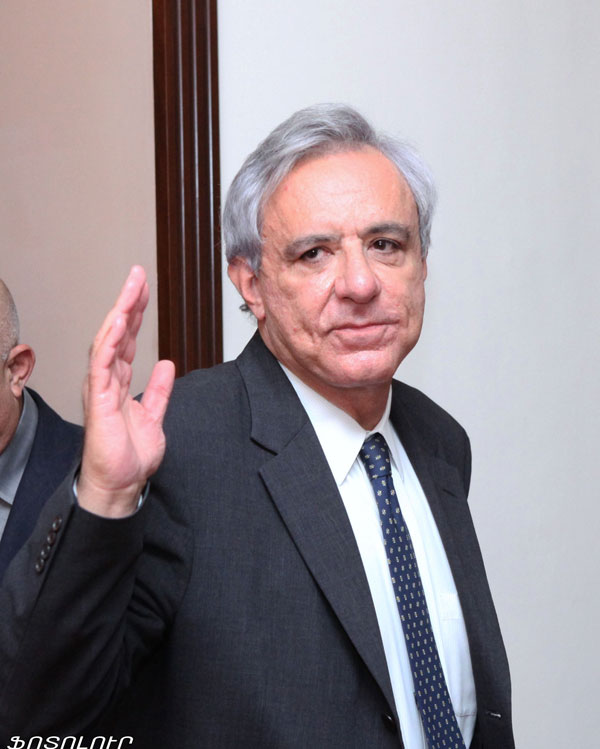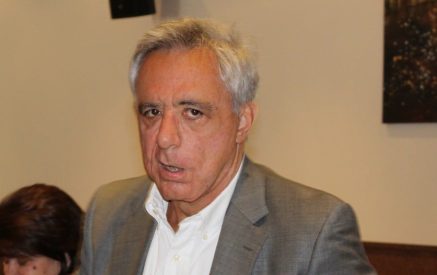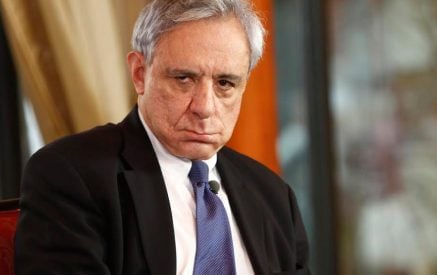Vartan Oskanian, the former Minister of Foreign Affairs of Armenia and a member of the Prosperous Armenia Party (PAP), wrote another status on Facebook talking about lost economic opportunities because of the lack of reforms.
“Armenia has reached a deadlock today. On the one hand, one needs profound reforms to get out of this mire, regress, on the other hand, the people, on whom alone the process and implementation of reforms depend, are not interested in implementing those reforms at all, because they will endanger their political and economic monopolies. The Armenian people pay a high price today to maintain that political monopoly,” V. Oskanian stated.
He also added that the foreign, including the Diaspora, aid and investments essential for Armenia depended on reforms and he pointed out among a set of factors the Millennium Challenges program, “The program was finally closed at the beginning of this year taking with it a roughly $300 million grant, which should have been invested in developing the Armenian infrastructure, which should have particularly benefitted rural and border areas. The program was closed, since Armenia wasn’t able to comply with the standards of good governance and democracy required by the program.”
Read also
Taking into account the latest actions of law-enforcers against V. Oskanian, as well as the obviously logical attitude of V. Oskanian toward the relations between the Republican Party of Armenia (RPA) and the PAP, one should, nonetheless, admit that mentioning the Millennium Challenges program by V. Oskanian was not a good move, since the decision to suspend it was made because of the mistakes made during V. Oskanian’s tenure.
As we all know, after the 2008 presidential election and events of March 1-2, John Danilovich, a former CEO of the Millennium Challenges Corporation (MCC), wrote a letter to then Armenian President Robert Kocharyan, which read, “Recent events could have negative effect on Armenia’s eligibility for MCC funding.”
One year after these events, in June 2009, the MCC Board of Directors decided to suspend the project of repairing 350 km of rural roads – roughly $68 million – implemented in Armenia. According to the statement of the corporation, the reason for the decision made by the Board of Directors was the fact that the actions of the government of Armenia were inconsistent with MCC principles promoting democratic governance. Rodney Bent, the Chief Executive Officer of the Corporation stated, “The responsibility for this outcome remains with the government of Armenia, whose actions have been inconsistent with the eligibility criteria that are at the heart of the MCC program. It is particularly disappointing
that MCC will not be able to partner with Armenia on completing the roads that will benefit Armenia’s rural poor who are our friends and partners in creating growth for the future.”
In mid-May 2008, the situation in Armenia in the post-election period and the problems caused by that were discussed during the meeting between Serzh Sargsyan and Tom Adams, the Coordinator of Assistance to Europe and Eurasia, US Department of State.
Adams said that they had some concerns about meeting the standards underlying the program and Serzh Sargsyan stated, “Our wish is to continue the partnership with the Millennium Challenges foundation.”
The story of suspending the Millennium Challenges program is rather fresh in everybody’s memory, nonetheless, the existing chronological facts are many and they really shed light on the reasons for the decision.
In 2011, the implementation of the Millennium Challenges foundation program in Armenia, which was signed on March 26, 2006, ended. Ara Hovsepyan, the Armenian executive director of the MCC, has stated lots of times in the press that they talked about the program implemented in Armenia and its political nuances during all the meetings of the Corporation council in 2009 and that after the events of March 1, a decision was made to temporarily hold off giving money for road building, until there was positive development, the issues they had raised were resolved. It turned out afterwards that the World Bank would implement the rehabilitation of the Armenian rural roads with credit programs.
That Oskanian deems the current government responsible for the discontinuation of the program today is understandable, but that the government during his tenure is responsible for the suspension of the program is also undeniable.
EMMA GABRIELYAN





















































